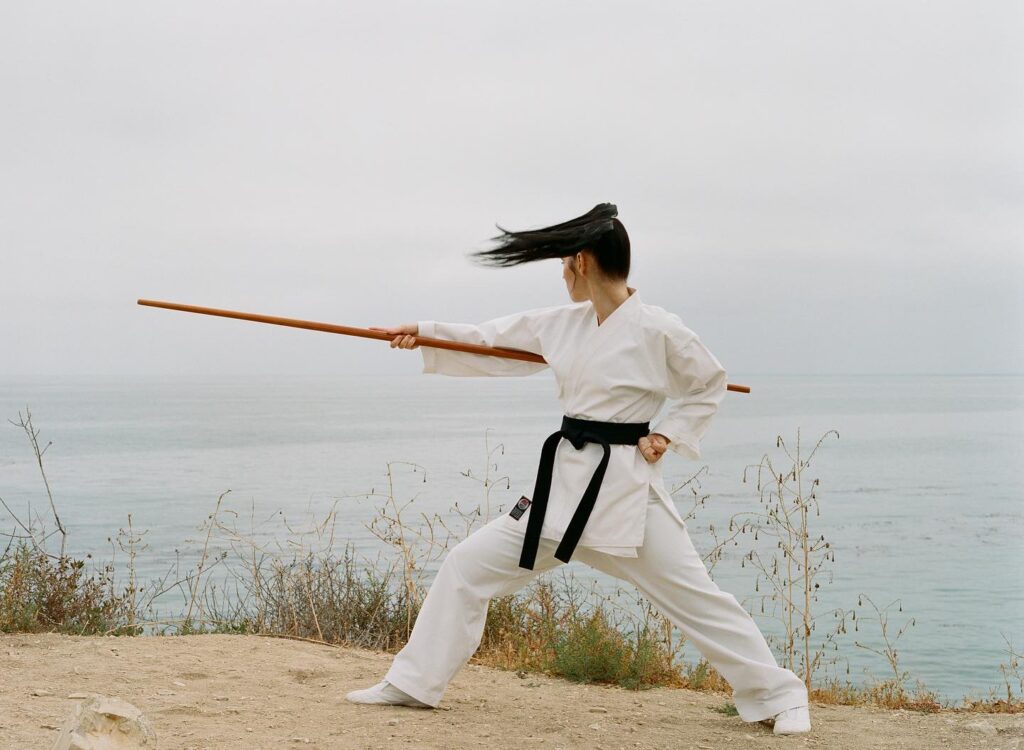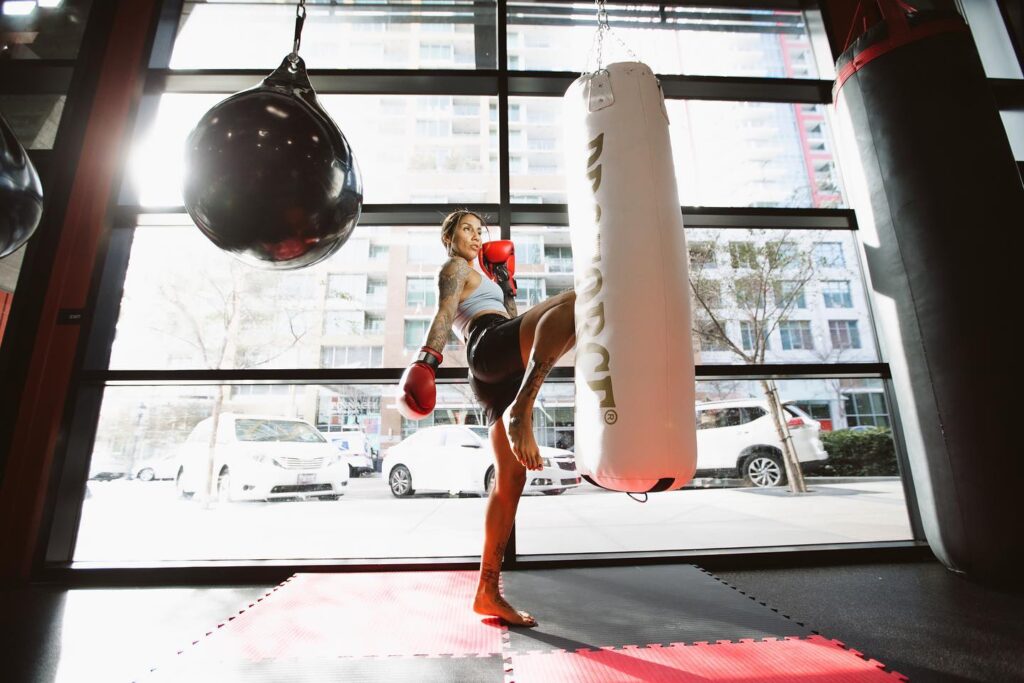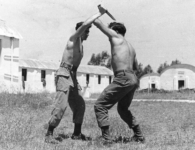
It’s Mental Health Awareness Month. Also known as Mental Health Month, this initiative was started by Mental Health America in 1949 to fight stigma, increasing understanding and normalizing open and honest discussions on the topic.
To mark the occasion and help contribute to that awareness, the AWMA Blog takes some time each May to talk about the relationship between mental health and martial arts. In 2022, we look at ways that martial arts training can improve your mental health. Last year, we tackled tips for taking care of your mental health during marital arts training.
This year, we’re going to dig deeper into the benefits that participating in martial arts can have on your overall mental health. By now, most of us are probably aware that regular exercise can help to improve your mood, reduce stress, and build a support network. But there are also a number of smaller ways that that martial arts can make whatever’s going on in your head a little more manageable. And those small changes can start to add up to make a big difference in your overall mental health.
Let’s take a look at some of those lesser known benefits of martial arts training for people who are dealing with mental health issues.
Improved Sleep
Getting enough proper rest is extremely important for both your physical and mental health. Even a small amount of sleep deprivation and exhaustion can lead to increased depression, anxiety, and other mental health issues. Martial arts is physically and mentally demanding and can be a great source of stress relief. A good training session can help to tire your body and mind and make sleep come — and stay — a little easier. If you’re able to get some good martial arts-induced rest on a regular enough basis, you could start to see an improvement in your mood and overall mental well-being.
Improved Sense of Identity
Poor mental health can have a negative impact on your sense of self. It can be hard to hold onto who you are, what you believe in, and what you love when you’re dealing with issues like anxiety and depression. For anyone who’s struggling to hold onto who they are and what makes them want to get out of bed in the morning, martial arts training can provide a sense of purpose and belonging. With their supportive community environment and clearly defined goals, martial arts can give you a space where you can start to find yourself and rebuild your self-esteem.

An Antidote to Loneliness
Loneliness is a huge problem for many adults these days. It’s not easy to make and maintain friendships when we’re all stressed and overworked, and often living away from any support system we might have. And feelings of isolation and alienation can understandably have a terrible effect on your mental well-being. This is another issue where martial arts communities can potentially come to the rescue. Martial arts classes are a place you can go for regular human interaction outside of work. They give you a chance to collaborate with like-minded people and to support each other while you pursue your goals. In most cases, you’ll probably end up making some good friends along the way, too.
Anxiety Management
Anxiety and medium and high intensity exercise don’t always go well together. For some people who are dealing with anxiety, the physical sensations of intense training feel too close to a panic attack, and pushing themselves into that zone runs the risk of exacerbating their issues.
Other people with anxiety might find that the opposite is true, though. For them, a tough workout is a way to get their heart rate up intentionally for a specific purpose. That can help distract them from the symptoms they experience from generalized anxiety and feel a greater sense of control over their bodies and minds. As long as you’re mindful of how you’re responding to the training, it could be worth a try to see if medium to high intensity martial arts training like Boxing, MMA, or Brazilian Jiu-Jitsu could work for you and your anxiety.

Learning How To Respond to Stressful Situations
One of the key components of any good martial arts training is helping students learn how to be calm and patient in uncomfortable scenarios. Once you learn not to panic after you’ve been mounted or hit, you can learn to take stock of your surroundings, and figure out what steps you might be able to take to change the situation. Once you learn it, that extremely valuable skill can also be applied to other aspects of your life. Being able to think and work through discomfort won’t necessarily fix your problems, but that ability to take a breath and not panic can make bad times a little easier to deal with.
A Fun Distraction
When you’re in a place where you know you can’t fix everything — or the effort to try to manage your mental health issues feels like just another exhausting demand on your limited resources — a temporary distract can take a bit of the edge off for a little while. Spending an hour or two hitting things or rolling around in a welcoming environment can offer a brief but much needed respite from everything else that’s going on in your life.




















